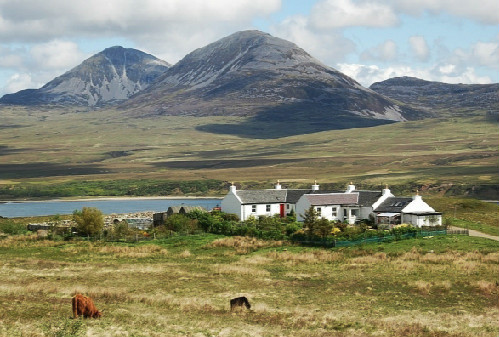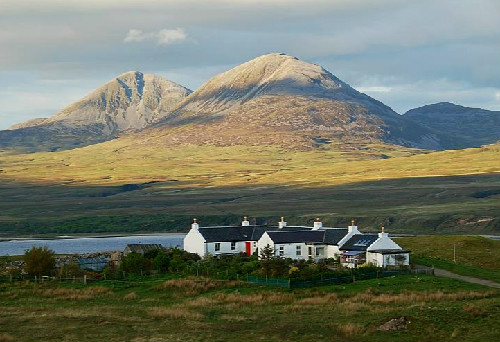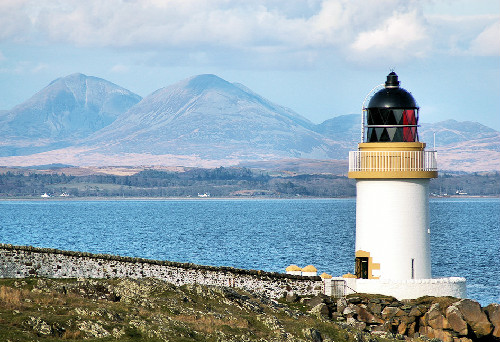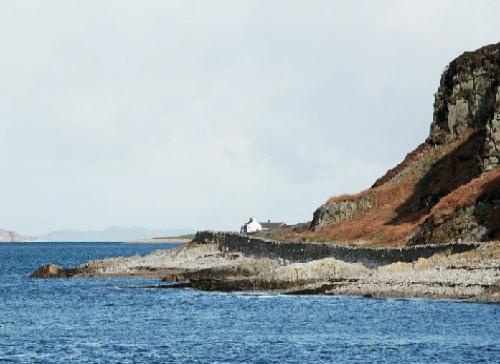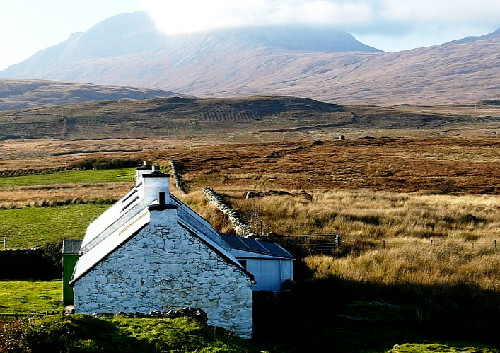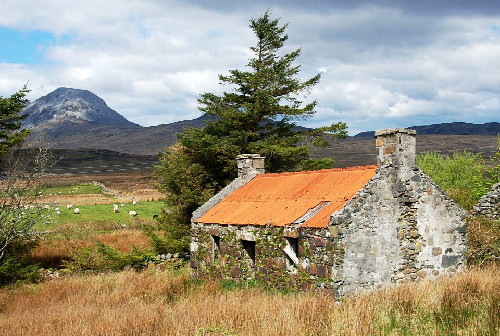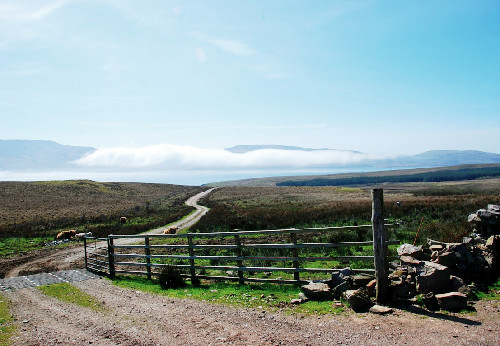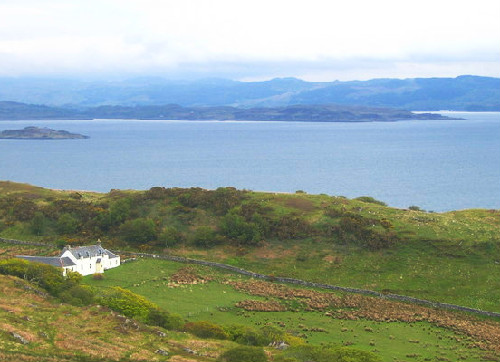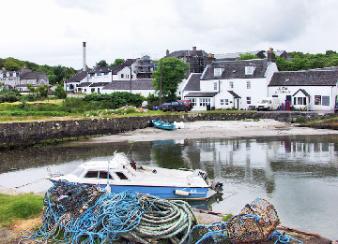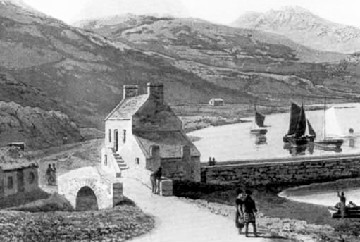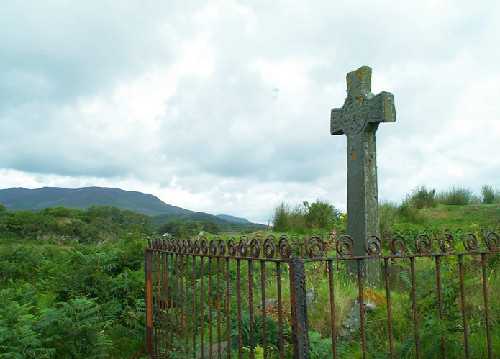
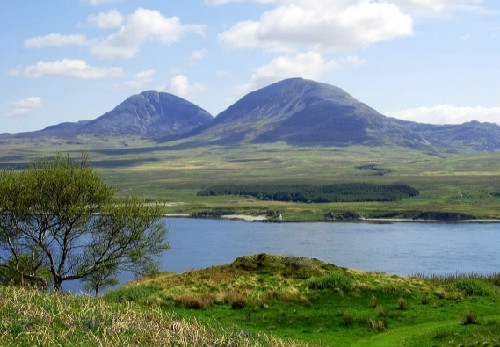
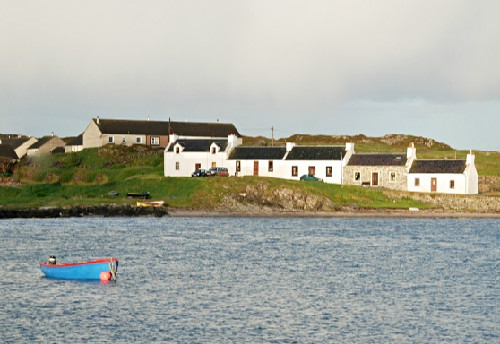
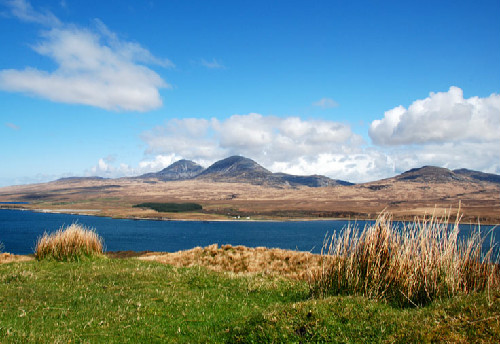
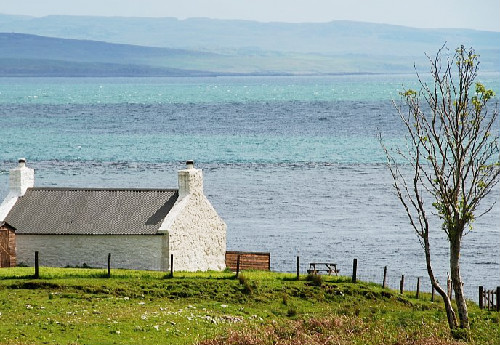
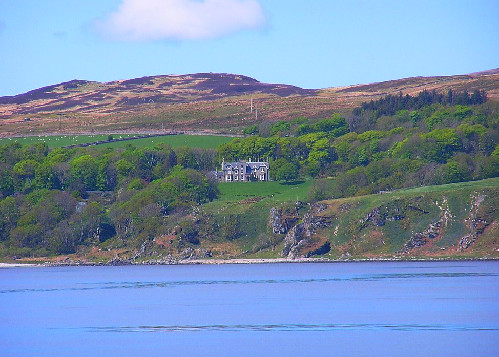
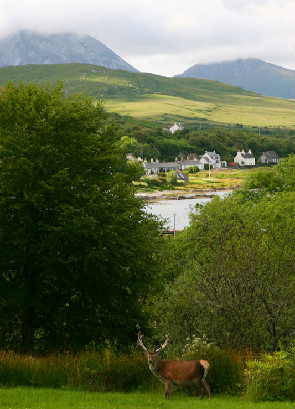
| Music: Somebody's Darling Whispers - Home Old New Orleans Friday's Journal |
| Across the Sound to Jura |
| Barnhill Farm |
| Please don't use the "Send Page" feature of your computer to send this entire page in an e-mail or document format. If you'd like to share it, please just send the link. Nancy The link to this page is: http://www.thepastwhispers.com/Jura.html |
| Crossing to Jura I shall sail across the sound, I shall sail across the ferry, To my native isle I'm bound, braving wind and wave and skerry. Soon I'll cross to Jura isle, where my dearest ones are dwelling, Mother waits to welcome me, mine a joy beyond all telling. Sailing swiftly toward the lea, strong brown hand upon the tiller, Now my father's form I see, wind and tide can hold no terror. Calm delight, my heart shall light my step to Lussa -- given, Gaelic speech my ear shall charm, dearest island under Heaven. Written in Gaelic by Nell Shaw; translated by Donald Budge |
As political and economic conditions worsened in the Scottish Highlands in the
1700's, ship after ship sailed away, carrying passengers hoping for a better life
elsewhere. The Isle of Jura was no exception.
The United States - especially North Carolina - was a favored destination, as
reports came back that the land was fertile and that "unmolested by taskmasters"
people could "reap the produce of their own labor and industry."
The love the Highlanders felt for their homes made the decision to leave a
heart-wrenching one. Before they left Jura, each would pick up a stone and,
collectively, they would erect a mound known as a cairn - a monument to their
homeland, their way of saying that the memory of it would always stay with them. As
the ship waited, they would tearfully bid farewell to their family and friends, saying,
"Cuiridh mi clach nad charn," meaning that, when they arrived in North Carolina, "I
will add a stone to your cairn."
1700's, ship after ship sailed away, carrying passengers hoping for a better life
elsewhere. The Isle of Jura was no exception.
The United States - especially North Carolina - was a favored destination, as
reports came back that the land was fertile and that "unmolested by taskmasters"
people could "reap the produce of their own labor and industry."
The love the Highlanders felt for their homes made the decision to leave a
heart-wrenching one. Before they left Jura, each would pick up a stone and,
collectively, they would erect a mound known as a cairn - a monument to their
homeland, their way of saying that the memory of it would always stay with them. As
the ship waited, they would tearfully bid farewell to their family and friends, saying,
"Cuiridh mi clach nad charn," meaning that, when they arrived in North Carolina, "I
will add a stone to your cairn."
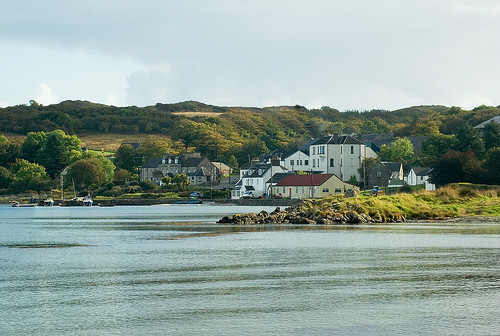
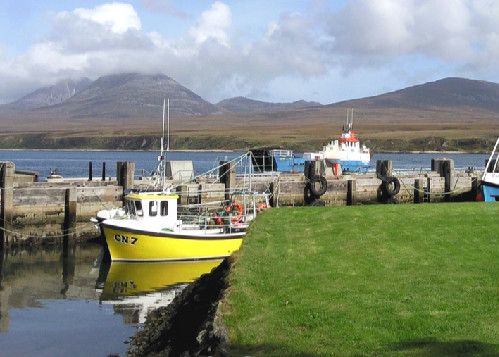
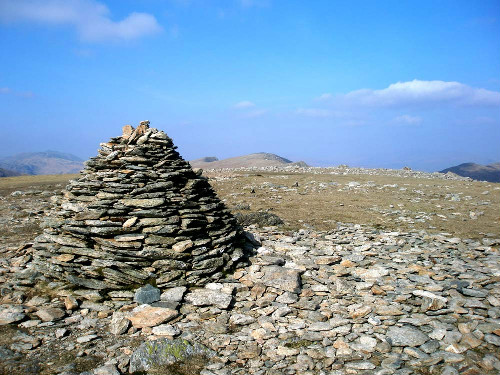
| Most of the photos on this page are from the Isle of Jura, located in the Hebrides of Scotland; a few are from the neighboring island of Islay. |
| It's said that the name Jura came from the Norse "dyr oe," meaning "deer island," because, at that time and for many years after, the island hosted a huge population of red deer. |
| The poem below was written by Donald McKechnie (1836-1908), who was known as the Bard of Jura. How short the span twixt come and go, greeting and farewell; Of yesterday the tale we know, tomorrow, who can tell. So speed the days on airy wing, fast gliding into years, As faithfully to us they bring our portion dashed with tears. But manfully let us pursue, surpassing doubt and fear, The higher aims we have in view, the good we hold most dear. |
| Farewell to Jura No more I'll climb the mountains high to view the meeting sea and eye The stately vessels passing by on every side of Jura. Give honour to the great, the brave, to sordid souls the gold they crave; Give me a walk at dusky eve along the shores of Jura. How dear to me thy every scene, when sun shines o'er thy Western Main, Or when he walks and spreads again his golden beams o'er Jura. By simple nature's power impressed, there friendship glows in every breast, The stranger is a welcome guest at every hearth in Jura. From strife of noisy towns secure, there mortals spend their lives obscure; Long may harmony endure throughout the Isle of Jura. Though ne'er to tread thy shores again, my heart with thee shall aye remain; Wher'er I wander, I'll retain my dearest wish for Jura. The poem above was written by Jessie Scott in 1871, before she emigrated from Jura to North Carolina. She lived at Knockintavill Farm, now known as Barnhill Farm. This farm was made famous by its illustrious tenant, author George Orwell, who lived there from 1946-1948. It was at Barnhill Farm that Mr. Orwell wrote his well-known novel, "1984." |
| Photos on this page are courtesy of Mysterious Scotland; Geograph UK: ubac at Flickr; AODVet at Flickr; Isle of Jura Pictures; Talk Photography; A Scottish Picture A Day |
| Left, village of Craighouse, Isle of Jura, ca. 1820; right, Craighouse today. |
